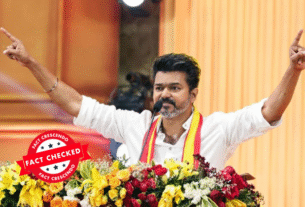Posts claiming Italy has “banned” gay and lesbian couples from becoming parents are spreading on social media. In reality, no single ban exists, but several laws severely restrict their options, creating challenging barriers for gay male couples.
Social Media Posts
We found multiple Facebook posts claiming that “Italy bans gay and lesbian couples from becoming parents.” These posts have garnered hundreds of shares.
Source | Archive Source | Archive
We found similar claims on Instagram and X as well.
Source | Archive Source | Archive
Fact Check
Adoption Rights for Same-Sex Couples
Under current Italian law, same-sex couples cannot jointly adopt children, whether domestically or internationally. This restriction exists because Italy only recognizes civil unions for same-sex couples, not marriage, and adoption rights are generally reserved for married couples.
However, single people can now adopt internationally following a March 2025 Constitutional Court ruling that struck down the 40-year restriction limiting foreign adoptions to married couples. This opens a pathway for individual LGBTQ+ applicants, though not for couples seeking to adopt together.
Despite restrictions, LGBTQ+ individuals still have some limited adoption options in Italy. One important pathway is “adozione in casi particolari” (adoption in particular cases), which allows someone who isn’t the biological parent to adopt a child in special circumstances. Through this provision, stepchild adoption, where one partner adopts their partner’s biological child, has been approved in some cases, particularly for lesbian couples.
Between 2014 and 2016, several court decisions established precedents for these adoptions, with judges citing the child’s best interests. However, approvals require lengthy court proceedings and depend on individual judges’ decisions rather than guaranteed legal rights.
Some Italian courts have also recognized foreign adoptions by same-sex couples from countries like the United States or Spain, but these remain exceptions requiring complex legal procedures.
In essence, LGBTQ+ couples in Italy can only become adoptive parents by navigating legal workarounds instead of having clear, equal rights to adoption.
(Sources: Boccadutri International Law Firm, Naharnet)
Parental Recognition for Lesbian Couples
In May 2025, Italy’s Constitutional Court made a significant ruling allowing both women in same-sex relationships to be recognised as mothers on their child’s birth certificate. This recognition only applies when the child was conceived through medically assisted reproduction performed abroad, as these procedures remain unavailable to same-sex couples in Italy.
This ruling resolves a longstanding issue where only biological mothers received legal recognition, leaving non-biological mothers without parental rights despite equal involvement in raising the child. This created problems ranging from school permissions to concerns about custody.
The court based its decision on the child’s best interests and human dignity, recognising that children deserve the security of having both parents legally recognised from birth. However, lesbian couples still cannot access IVF services within Italy, requiring them to travel abroad for fertility treatment before seeking legal recognition, which is a financially and emotionally taxing process.
While this represents progress for lesbian couples, the recognition remains limited to specific circumstances and doesn’t extend to gay male couples.
(Sources: ICLG, France 24, AP News)
Surrogacy Ban: Domestic and International
Surrogacy has been illegal in Italy since 2004 for everyone, regardless of sexual orientation. In October 2024, Italy took this a step further when Parliament made it illegal for Italians to use surrogacy services abroad. Breaking this law can result in a prison sentence of up to two years and fines of up to €1 million.
While this law affects everyone equally on paper, it creates a much bigger problem for gay male couples. Unlike lesbian couples who can use IVF treatment (though they must go abroad for it), gay men have no other way to have biological children except through surrogacy. Many critics argue that the law targets explicitly LGBTQ+ families while claiming to protect women and children. International human rights organizations have spoken out against the law, calling it discriminatory.
Since the law went into effect, several same-sex parents have been investigated after returning from abroad with their children. Gay male couples in Italy now face a difficult choice: either give up pursuing biological parenthood through surrogacy or risk legal consequences. Several advocacy groups note that this has had a chilling effect on family planning among LGBTQ+ couples.
(Sources: International Business Times, CNN, Washington Post)
IVF and Medically Assisted Reproduction Limits in Italy
Law 40 (2004) limits medically assisted reproduction to heterosexual couples who are married or in stable relationships. Same-sex couples cannot access any fertility treatments within Italy.
Following the May 2025 Constitutional Court ruling, lesbian couples who travel abroad for IVF now have a clearer path to legal recognition for both mothers, without needing separate court rulings in every case. Previously, this required separate court proceedings that were expensive, lengthy, and unpredictable.
This creates a two-tier system where heterosexual couples access fertility treatments domestically with immediate parental recognition, while same-sex couples face significant barriers at every stage
(Sources: Human Rights Watch, Oxfam Connecting Spheres)
Civil Unions vs. Marriage
In 2016, Italy established civil unions for same-sex couples. This legislation provided legal recognition for same-sex relationships but did not include adoption rights. As a result, same-sex couples in civil unions have different family-building options compared to married heterosexual couples, who can jointly adopt children.
This legal distinction has practical implications. Italian law establishes marriage as the primary framework for determining parental rights. Since same-sex couples cannot legally marry in Italy, they encounter additional barriers to parental rights that married heterosexual couples do not face. Civil unions offer certain legal protections—including inheritance rights, hospital visitation, and shared property, but do not provide equal family formation rights.
While Italy has recognized same-sex relationships through civil unions, parenting rights were not included in this legislation. This creates a differentiated legal framework where LGBTQ+ families have access to fewer parental options.
(Sources: Euronews, Los Angeles Times, Reuters)
Conclusion
The claim “Italy has banned gay and lesbian couples from becoming parents” requires additional clarification. Italy doesn’t have a specific law that says “LGBTQ+ people can’t be parents.” While Italy does not explicitly prohibit LGBTQ+ individuals or couples from becoming parents, a combination of legal and policy limitations, including adoption restrictions, surrogacy bans, and lack of access to fertility treatment, create significant obstacles, particularly for male same-sex couples.

Title:Has Italy Banned Gay and Lesbian Couples from Becoming Parents?
Fact Check By: Cielito WangResult: Insight






